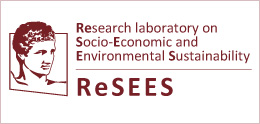STS forum 2022 | “Financing the Sustainable Economy”
On October 3, Prof. Phoebe Koundouri participated at the “Financing the Sustainable Economy” session at the 19th Annual Meeting of Science and Technology in Society forum (STS forum) in Japan.
Bringing together scientists and global leaders in the fields of politics, business and academia, the STS forum has grown in size, quality and diversity to become the world’s premier platform for discussing issues related to science and technology and their implications for society.
Her speech focused on the importance of Natural Capital for the transition to sustainability.
Prof. Koundouri’s remarks points:
“Although numerous studies have demonstrated the emergency of biodiversity loss, less evidence has been provided on the changes we need at a political, financial and economic level to slow down and reverse this path. Therefore, to help stakeholders anticipate the value of Nature and its contribution to society, we perform an analysis to economically evaluate the services provided by three main types of Ecosystems: Terrestrial, Marine, and Freshwater. Integrating this ecosystem valuation into the SDG framework, it is possible to translate the SDG implementation to monetary values. Our results indicate that the Willingness to Pay (WTP) of citizens varies by Ecosystem Service and by Bio-Geographical Region for all ecosystems (Terrestrial and Marine & Fresh water), and call for structural changes to tackle biodiversity loss.
However, SDGs are still significantly underfunded by governments and private investors; the actual SDG funding gap is estimated at around 10% of today’s global GDP. The overall volume of financing is insufficient, but its allocation is imperfect, too. Most of the current spending appears to be allocated to advanced economies and focuses on climate and environment-oriented Goals, whereas there is a massive shortfall in funding for human, economic, and social SDGs. The world needs the coordination of governments, individuals, and private corporations beyond traditional financial services companies to remedy this. Efficient collaboration between the UN, national governments and the private sector will require a shared blueprint of goals, deliverables, roles, and actions. Section 3.4 provides an outline of such an approach”.

Session “Financing the Sustainable Economy”:
Chair
- Kanda Masato, Vice Minister of Finance for International Affairs, Ministry of Finance, Japan, Japan; Chair, Corporate Governance Committee, Organisation for Economic Cooperation and Development (OECD), France
Speakers
- Blanco Mendoza Herminio, President, IQOM, Inteligencia Comercial; former Minister of Trade and Industry, , Mexico
- Koll Jesper, Global Ambassador, Monex Group; Board Director, OIST – Okinawa Institute of Science & Technology, Japan
- Koundouri Phoebe, Professor, Department of International & European Economic Studies, Athens University of Economics And Business, Greece; President, European Association of Environmental and Resource Economists.
- McBain Darian, Chief Sustainability Officer, Sustainability Group, Monetary Authority of Singapore, Monetary Authority of Singapore, Singapore
- Ozeki Hiroshi, President and Chief Executive Officer, Nissay Asset Management Corporation, Japan
- Sandor Richard L., Chairman of the Board & CEO, American Financial Exchange, LLC; Chairman and Chief Executive Officer, Environmental Financial Products, LLC, U.S.A.
Discussion Points of the session:
– leveraging finance to strike a balance between energy access/security, and decarbonization;
– building legal and institutional setting to mobilize finance to support new technologies that accelerate transition and enhance humanity to be developed and equipped;
– using public finance effectively for tapping more private finance for investments toward achieving the goals of Paris Agreement;
– designing carbon trading system including private voluntary carbon market initiatives with high environmental integrity and clear price signal for stakeholder; and
– making the transition just for all, through life-long education and reskilling, as well as more productive and decent job creation, with the effective use of public and private finance.




 76 Patission Str.
76 Patission Str. 30 2108203 455
30 2108203 455
